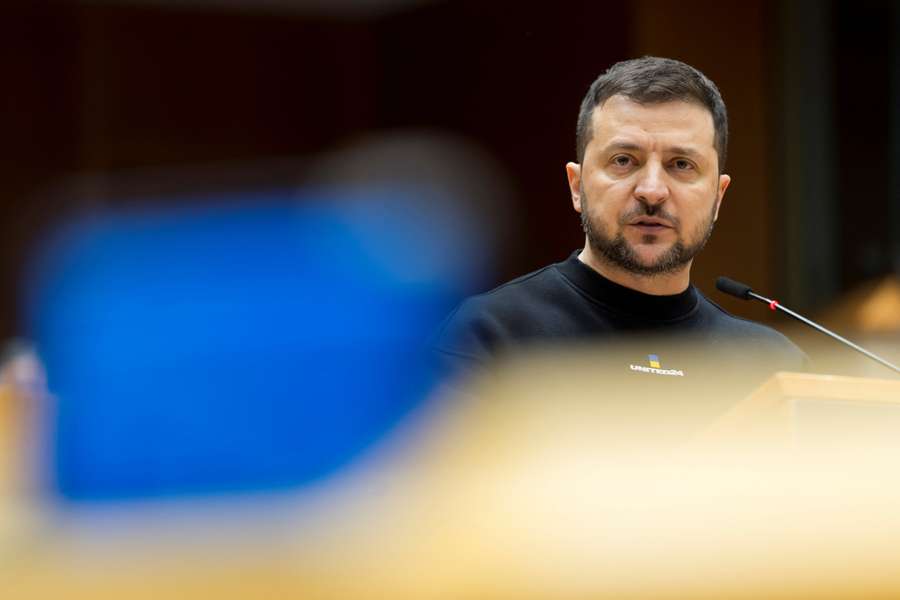Olympics row deepens as 35 countries demand ban for Russian and Belarusian athletes

The move cranks up the pressure on the International Olympic Committee (IOC) that is desperate to avoid what is arguably the world's biggest sporting event being torn asunder by the bloody conflict unfolding in Ukraine.
"We are going in the direction that we would not need a boycott because all countries are unanimous," Jurgita Siugzdiniene said.
Ukrainian President Volodymyr Zelenskiy took part in the online meeting attended by 35 ministers to discuss the call for the ban, a Lithuanian sports ministry spokesperson said earlier.
The spokesperson said Zelenskiy's message to participants was that principles of neutrality cannot apply to Russia's invasion of Ukraine.
"A privilege to host @ZelenskyyUa today at our summit on Olympic participation," British sports minister Lucy Frazer wrote on Twitter.
"It was a very productive meeting between 35 nations, and I made the UK's position very clear: As long as Putin continues his barbaric war, Russia and Belarus must not be represented at the Olympics."
With war raging in Ukraine, the Baltic States, Nordic countries and Poland had called on international sports bodies to ban Russian and Belarusian athletes from competing in the Olympics.
Russia launched a wave of attacks on Ukrainian infrastructure in the cities of Kharkiv and Zaporizhzhia on Friday morning as Ukrainian officials said a long-awaited Russian offensive was underway in the east.
"Russian aggression has resulted in the death of 231 Ukrainian athletes and coaches," Czech foreign minister Jan Lipavsky said in a statement after meeting the heads of the Czech IOC and the national sports agency.
"At the same time, we know that 70 per cent of Russian athletes are soldiers. I consider it unacceptable that such people participate in the Olympic Games in the current situation when fair play obviously means nothing to them."
BOYCOTT
Ukraine has threatened to boycott the games if Russian and Belarusian athletes compete and Ukrainian boxer Oleksandr Usyk has said Russians will win "medals of blood, deaths and tears" if allowed to take part.
Such threats have revived memories of boycotts in the 1970s and 1980s during the Cold War era that still haunt the global Olympic body today, and it has called on Ukraine to drop them.
However, Polish Sports Minister Kamil Bortniczuk said that a boycott was not on the table for now.
"It's not time to talk about a boycott yet," he told a news conference, saying there were other ways of putting pressure on the IOC that could be explored first.
He said that most participants had been in favour of an absolute exclusion of Russian and Belarusian athletes.
"Most voices - with the exception of Greece, France, Japan - were exactly in this tone," he said.
He said that creating a team of refugees that would include Russian and Belarusian dissidents could be a compromise solution.
The IOC has opened the door for Russian and Belarusian athletes to compete as neutrals. It has said a boycott will violate the Olympic Charter and that its inclusion of Russians and Belarusians is based on a UN resolution against discrimination within the Olympic movement.
Some 18 months before the competition is due to start, the IOC is desperate to calm the waters so as not to imperil the games' message of global peace and deliver a huge hit to income.
While Anne Hidalgo, the mayor of the host city Paris, has said Russian athletes should not take part, Paris 2024 organisers have said they will abide by the IOC's decision on the issue.
The Russian sports ministry did not immediately reply to a request for comment. An IOC spokesperson said they would not comment "on interpretations from individual participants of a meeting whose overall content is unknown".
